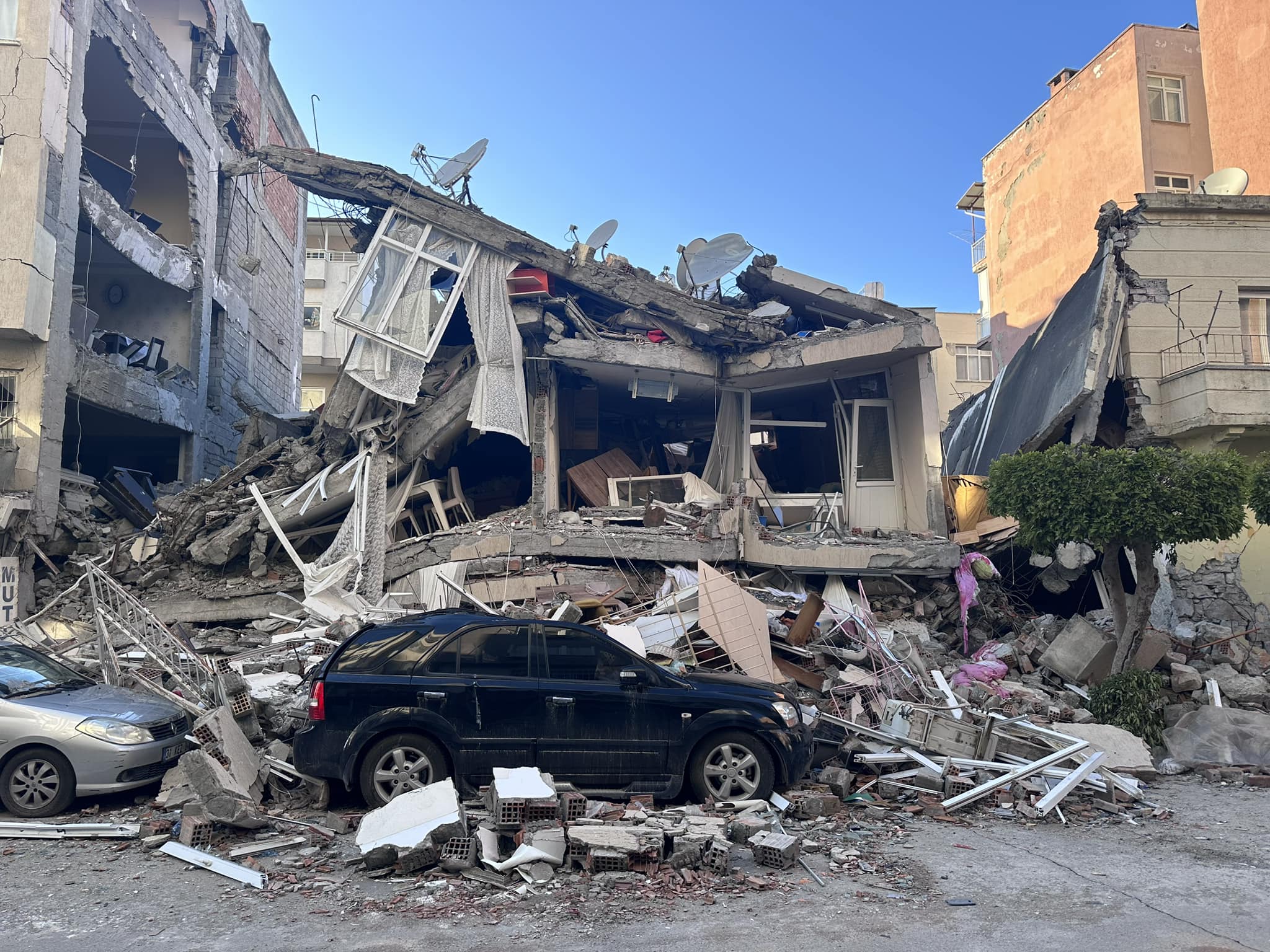Turkish government expropriates homes - habitable - of earthquake survivors
An investigation reveals the effects of an amendment passed in November affecting thousands of people. The seizures are aimed at creating 'reserve building areas', a temporary measure to speed up recovery. Citizens protest: 'We are able to repair our homes'.
Istanbul (AsiaNews) - The relief and luck, amidst the devastation, of seeing one's house still standing while the earthquake had razed entire neighborhoods all around, followed, less than a year later, by the bitter surprise of seeing it seized by the government with a short and cold text message on the phone notifying the expropriation measure.
This is what happened to 61-year-old Habip Yapar, originally from southern Turkey, who was also hit by the earthquake of 6 February 2023 and who, last October, had to symbolically hand over the keys to his home in the province of Hatay to officials of the Ministry of Treasure.
Yapar's story emerged in an investigation published today by Reuters, which affected many thousands of other fellow citizens who survived the earthquake and were affected by an amendment to the urban planning law.
Turkish Urban Planning Minister Mehmet Ozhaseki said in early February that the government needs the new powers established in the law amendment to speed up the redevelopment of neighborhoods in cities severely damaged by the earthquake.
Hatay, on the border with Syria, suffered the most damage during the deadliest earthquake in the country's modern history and, since then, reconstruction seems to have lagged behind the ambitious deadlines - and plans - set by President Recep Tayyip Erdogan.
According to the regulation, approved in November, the seizures were aimed at creating "reserve building areas", a temporary measure to speed up the recovery and the affected people would have the right to a new property after paying the cost of construction, without however providing details on the financial burden.
Although earthquake insurance is mandatory, the rule is not always enforced and often only covers part of the costs of rebuilding or purchasing a property. The Reuters investigation, which interviewed dozens of residents, lawyers and officials, found that thousands of homeowners were caught off guard by the seizure plans, and many learned from social media that their properties would be affected.
Like Yapar, dozens of people in the coastal town of Samandag received messages before the amendment was even passed in November. Five months later, the government has still provided no information on the payments, what will happen if they are unable to make it, any compensation they may be entitled to, and when and for how long exactly their bonds will be in the executive's possession.
Yapar lives with his wife, adult son and daughter in a temporary tent shelter. And like him, at least 215 thousand survivors of Hatay live in container camps or tents. A retired civil engineer, he had been saving to repair his two-storey house but with the transfer of ownership to the government he is unable to start the work and is currently scheduled for demolition. He has filed a lawsuit against the demolition, denying that the building is irrecoverable and unusable. “We can - he states - rebuild our homes on our own and we don't want a cent from the State”.
The story of the 61-year-old engineer is not an isolated case in Hatay, because several lawsuits have already been initiated in the courts against forced expropriations, while there are no official comments from the Ministry of Urban Planning and the president's office. Meanwhile, several opposition parties have submitted parliamentary questions to ask the ministry for more information on the new law, but they have remained unanswered.
Hatice Altinoz said she and her son Ahmet had to leave their damaged apartment in Antioch because it is in an area largely cleared for reconstruction. “The authorities,” she points out, “did not provide us with a container to stay in because our building had not collapsed, so I moved into my daughter's container house.”
“My family and I - comments Dilay Dolar, 57 years old, entrepreneur - have worked hard to own these assets [...] But now it is not clear what the future holds for us”.
Recently Msgr. Paolo Bizzeti, apostolic vicar of Anatolia and president - recently reconfirmed - of Caritas Turkey, had warned of "critical issues" in post-earthquake management both due to the "enormous dimensions" of the tragedy and the uncertainties. “Regulatory plans will be needed - warned the prelate - ideas and projects, management that is not clientelistic”.
In total, Erdogan promised 254 thousand new homes for the province of Hatay; construction has been completed on fewer than 7,300 of these so far, according to data from the governor's office.
07/02/2019 17:28
11/08/2017 20:05







.png)










